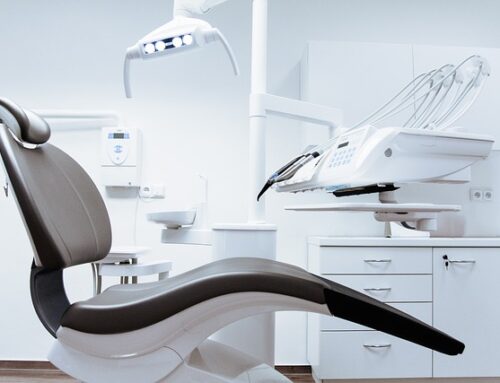Temporomandibular joint disorder (TMD) can cause discomfort, pain, and limitations in daily activities for many individuals. Fortunately, there are several effective strategies that can help alleviate TMD symptoms.
As dental professionals, dentists play a crucial role in guiding patients towards relief. In this blog post, we will explore some valuable tips that dentists can share with their patients for TMD relief.
Practice good posture
Encourage patients to maintain proper posture throughout the day, as slouching or hunching can strain the neck, jaw, and temporomandibular joint (TMJ). Advise patients to sit up straight, align their ears with their shoulders, and avoid cradling the phone between their ear and shoulder.
Relaxation techniques
Stress and anxiety often exacerbate TMD symptoms. Recommend stress management techniques such as deep breathing exercises, meditation, and yoga. Encouraging patients to identify and address stress triggers can significantly reduce muscle tension and alleviate TMD discomfort.
Apply moist heat or cold packs
Applying moist heat or cold packs to the affected area can provide temporary relief from TMD symptoms. Advise patients to use a warm compress or a cold pack wrapped in a thin cloth, and apply it to the jaw joint for 10-15 minutes. This can help reduce inflammation and ease pain.
Jaw exercises
Suggest patients incorporate gentle jaw exercises into their daily routine. Exercises like opening and closing the mouth, moving the jaw from side to side, and gently massaging the jaw muscles can promote flexibility and relieve tension in the TMJ.
Avoid trigger foods
Certain foods can aggravate TMD symptoms by requiring excessive jaw movement. Advise patients to steer clear of hard, chewy, or sticky foods, such as chewing gum, tough meats, and candies. Encourage them to opt for softer, easier-to-chew options like steamed vegetables, soups, and lean proteins.
Use a night guard
Many individuals clench or grind their teeth, especially during sleep, which can worsen TMD symptoms. Recommending a custom-made night guard can help alleviate pressure on the TMJ and protect the teeth from damage caused by bruxism.
Medications and therapies
In certain cases, over-the-counter pain relievers, muscle relaxants, or anti-inflammatory medications may provide temporary relief from TMD symptoms. Dentists can guide patients on appropriate dosage and duration. Additionally, treatments like physical therapy, chiropractic care, or acupuncture might be beneficial in managing TMD symptoms.
Avoid excessive jaw movements
Encourage patients to minimize excessive jaw movements, such as excessive yawning, biting into large sandwiches, or chewing gum for extended periods. These actions can strain the TMJ and exacerbate TMD symptoms.
Seek professional help
Finally, emphasize the importance of seeking professional dental care for TMD relief. Dentists can provide accurate diagnosis, create personalized treatment plans, and offer additional therapeutic options like splints or orthodontic adjustments for severe cases.
TMD can significantly impact a person’s quality of life, but with the right guidance and strategies, relief is possible. Dentists play a vital role in helping patients manage their TMD symptoms effectively. By sharing these tips and encouraging a holistic approach to TMD relief, dental professionals can empower their patients to regain control over their oral health and overall well-being.
Remember, each patient is unique, so it’s essential to tailor treatment plans to individual needs and regularly monitor progress towards long-term TMD relief.





